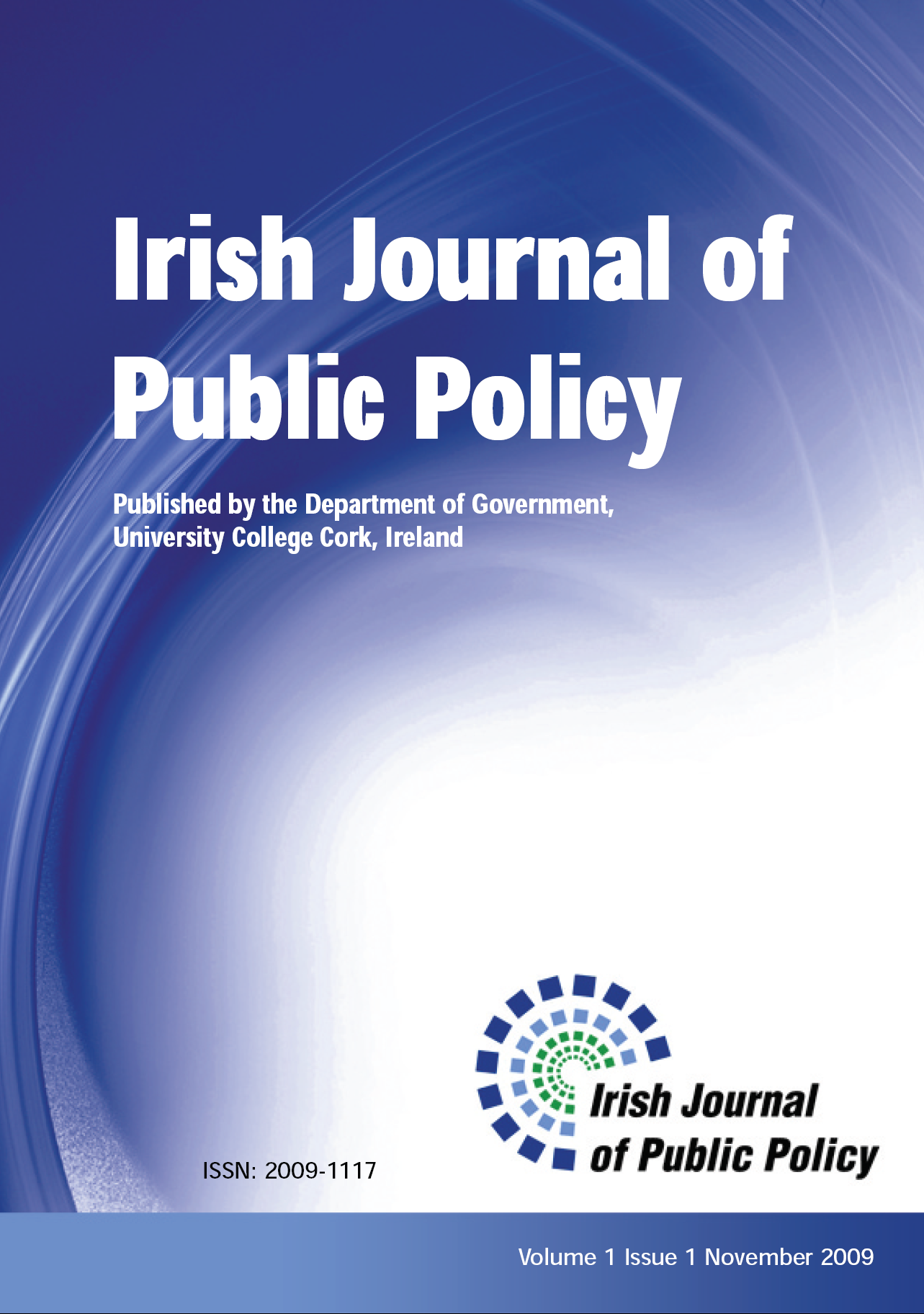Public Policy in an emerging state: The Irish Free State 1922-25
DOI:
https://doi.org/10.33178/ijpp.1.1.5Abstract
The first three years of the Irish Free State’s existence were among the most crucial in independent Ireland’s history. William T. Cosgrave and his Cumann na nGaedheal (Party of the Irish) governments suppressed an internal revolt, overcame an acute scarcity of money, enacted a constitution, and defined how the state would be governed. They established an Irish civil service, army, courts service, police force and diplomatic corps; passed legislation to purchase the remaining agricultural land held by landlords; commenced exploitation of the natural resources, extended the use of Irish in schools, and began the task of increasing the state’s sovereignty. The administration of the Irish Free State was quickly changed from the British system of loosely co-ordinated boards and departments to a centralised Irish system.References
Allen, G. (1999), The Gárda Síochána, Dublin: Gill & Macmillan.
Brady, C. (1974), Guardians of the Peace: policing independent Ireland, Dublin: Gill & Macmillan.
Corcoran, D. (2009), ‘The Irish Free State 1922-32: Government and Administration’ (PhD Thesis, University College, Cork).
Cork Employers Federation Pamphlet (1924), University College Cork: Special Collections.
Coolahan, J. (1981), Irish Education: Its History and Structure, Dublin: Institute of Public Administration (IPA)
Commission of inquiry into the Civil Service 1932-35 (Brennan Commission 1936), Dublin: Stationery Office.
Commission on Agriculture (1924), Dublin, Stationery Office.
Council of Education (1960), Dublin, Stationery Office.
Daly, M. E.(2002), The First Department: A History of the Department of Agriculture, Dublin : Institute of Public Administration
Fanning, R. (1978), The Irish Department of Finance, 1922-58, Dublin: Institute of Public Administration
Fiscal Inquiry Committee (1923), Dublin, Stationery Office.
Haslam, R. (2003), ‘Origins of Irish Local Government’ in Callanan, Mark and Keogan, Justin F. (eds.), Local Government in Ireland Inside Out, Dublin, Institute of Public Administration
Horgan, J.J. (1920), ‘City Management in America’, Studies, vol. IX, Dublin.
Keatinge, P. (1973), The Formulation of Irish Foreign Policy, Dublin: Institute of Public Administration.
Kelly, A. (2002), Compulsory Irish Language and Education in Ireland, 1870s-1970s, Dublin: Irish Academic Press.
Kennedy, D. (1998), The Widening Gulf: Northern attitudes to the independent Irish State, 1919-49, Belfast: Blackstaff Press.
Lynch, P. (1959), ‘The Economics of Independence’; Administration, vol. 7, Dublin: Institute of Public Administration.
Meenan, J. (1971), The Irish Economy since 1922, Liverpool: Liverpool University Press.
Maguire, M. (1998), Servants to the Public: A History of the Local Government and Public Services Union 1901-1990, Dublin: IPA.
_______(2005), ‘The Civil Service, the State and the Irish Revolution, 1886-1938’ (PhD Thesis, Trinity College, Dublin) see also Martin Maguire (2008), The Civil Service and the Revolution in Ireland 1918-1938: shaking the bloodstained hand of Mr. Collins, Manchester: Manchester University Press.
O’Hegarty, P. S. (1919) Sinn Féin, An Illumination, Dublin, Maunsell.
O’Sullivan, D. (1940), The Irish Free State and its Senate, London: Faber & Faber.
Pender, Capt. A. (ed.) (1988), Irish Defence Forces Handbook, Dublin: An Cosantóir.
Regan, J.M. (1999), The Irish Counter-Revolution 1921-36, Dublin: Gill & Macmillan.
‘Select Constitutions of the World’, paper presented to the Dáil by order of the Irish provisional government, September 1922.
Walsh, J. J. (1944), Recollections of a Rebel, Tralee: Kerryman.
Downloads
Published
Issue
Section
License
Copyright (c) 2009 the author(s)

This work is licensed under a Creative Commons Attribution-NonCommercial-NoDerivatives 4.0 International License.



